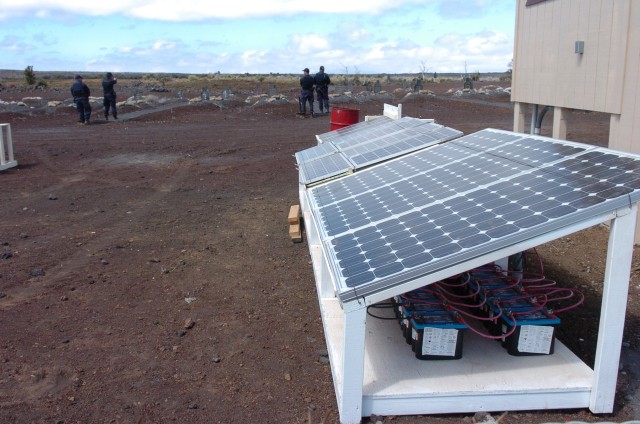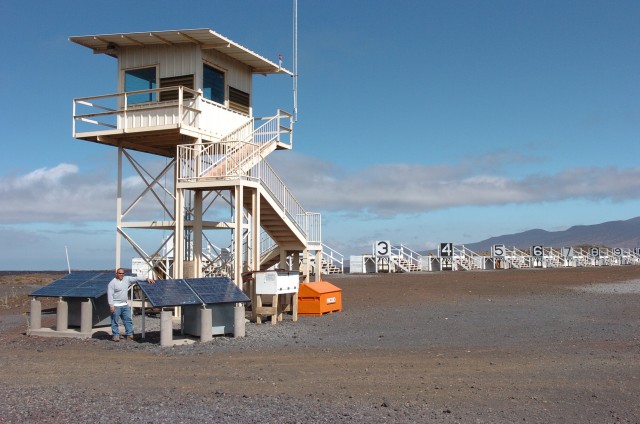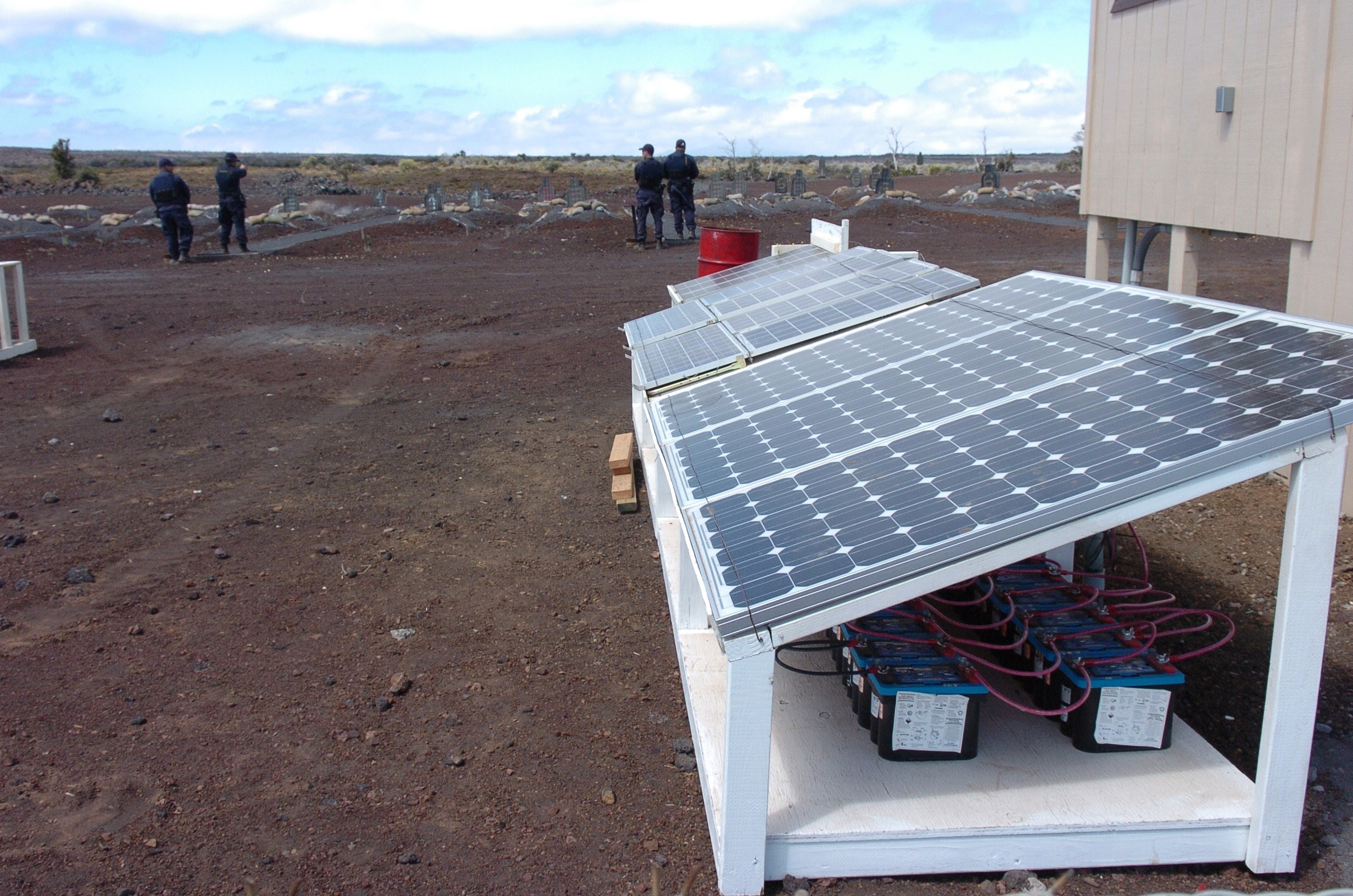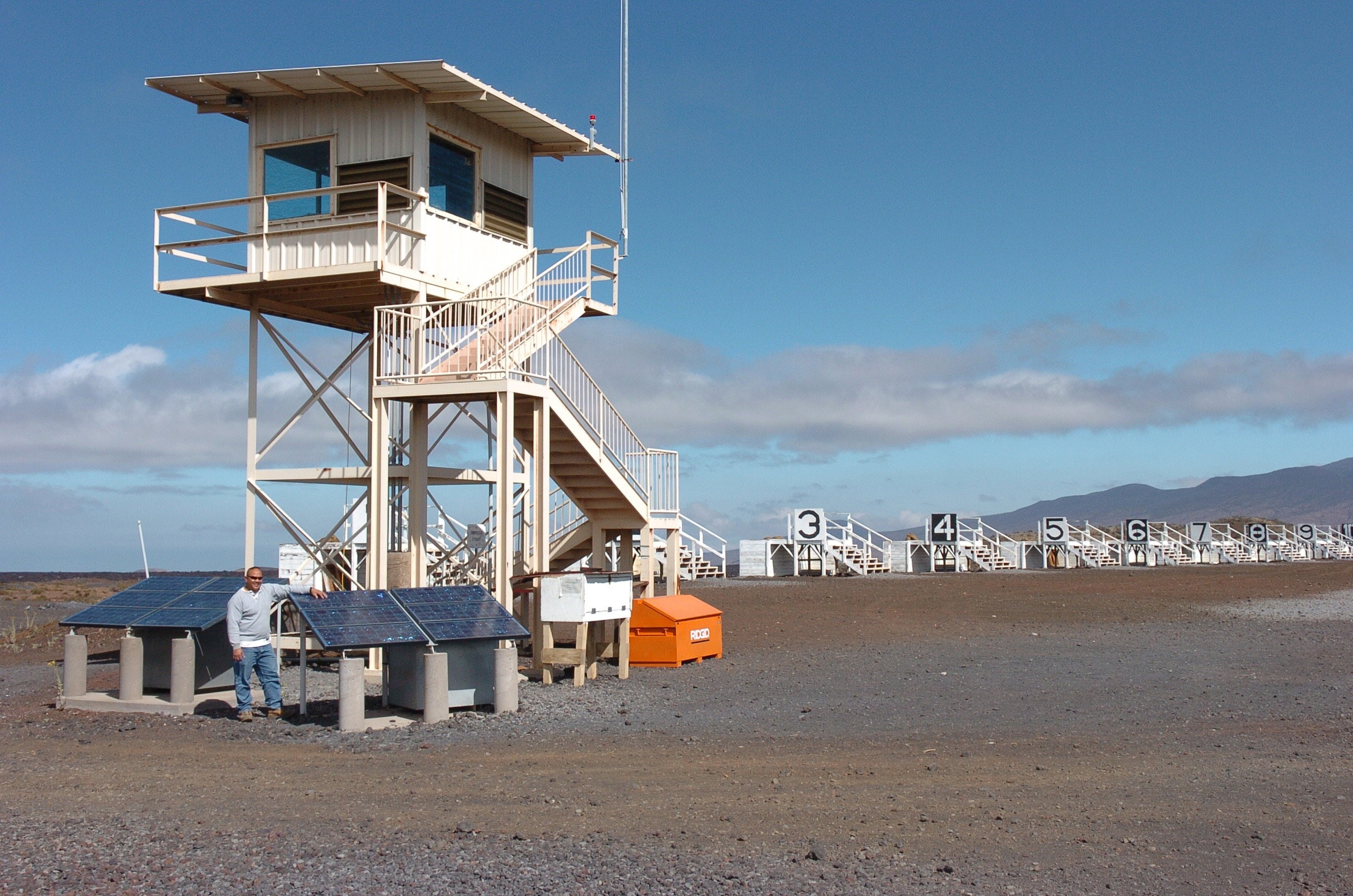POHAKULOA TRAINING AREA, Hawaii - If you haven't noticed, alternative energy resources to gas and oil-based energy are surging forward.
One of the benefits here in Hawaii is the constant exposure to the sun and the use of its energy through solar panels.
Pohakuloa Training Area (PTA) currently uses solar panels to operate its 16 weapons ranges.
"More than 450 solar panels are installed at various small-arms ranges and powers the range towers and pop-up targets," said Gerrit Pasco, PTA range maintenance supervisor.
"All our ranges are solar-equipped, and we use generators only as a back-up," he added. "Generators are used at night if the usage continues all day for a week and if there is insufficient sun time to recharge the batteries."
Range maintenance personnel see the benefits of solar panels.
"Before solar panels, we used to replace batteries, sometimes three times a day, and run generators for 24 hours to operate the ranges," Pasco said. "Solar panels have made an impact on the operation of PTA ranges greatly.
"With solar energy, ranges are more dependable as we spend less hours for maintenance," he said, "and there is tremendous cost savings on gasoline to run the generators."
In two ways, solar panels work to provide efficient operation of the ranges. Solar panels charge-up batteries (DC battery power), which is converted to AC power by an inverter, and used to power-up the range tower computer and lights, Pasco said. The panels also provide power to operate the pop-up targets.
"Solar panels are maintenance-free, but problems may occur in the battery storage area as it may not have the capacity to run the system on a 24-hour basis," Pasco explained. In addition, solar panels last longer, and have manufacturer warranties ranging from 10 to 25 years.
With zero-emission and zero-electrical costs, solar energy provides efficient and effective military training operations at PTA ranges, thanks to the sun and solar panels.
"It's the way to go with the amount of sun exposure that we get here all year-round," Pasco said. "The next step is to capture the wind that flows through PTA.
"These natural resources are free and accessible, so why not use it to our benefit," he added.




Social Sharing